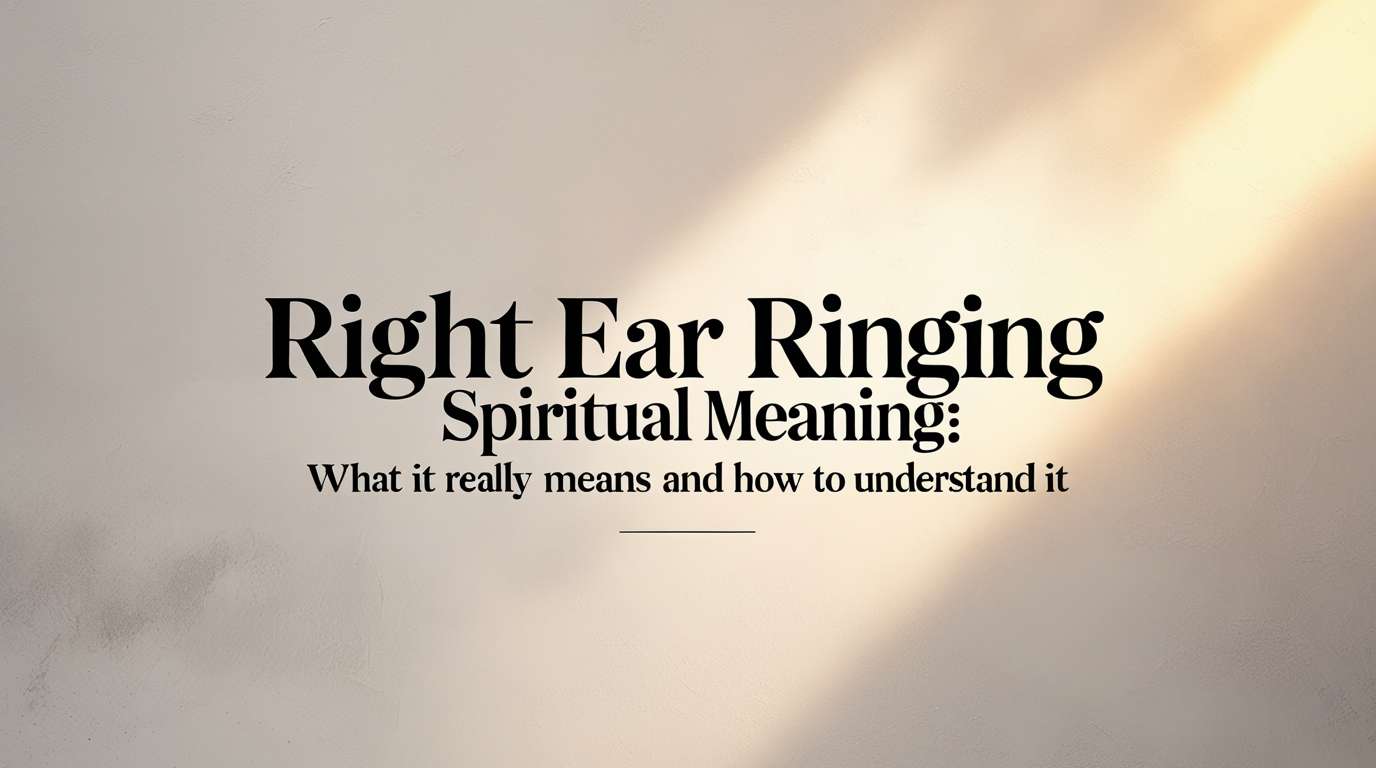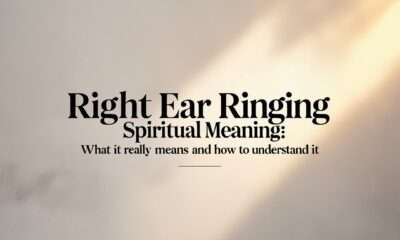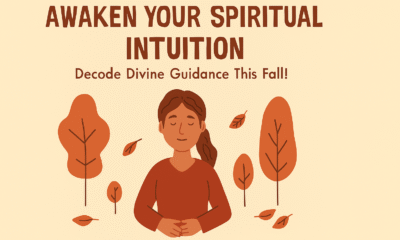Spirituality
What is the spiritual significance of limes?

Ever wondered what the spiritual significance of limes is? Limes hold a special place in various spiritual practices and beliefs around the world. From cleansing and purifying to offering protection and luck, limes have been cherished for their spiritual properties for centuries. In this article, we will explore the mystical meaning behind limes and how they can be used in spiritual rituals and practices.
Table of Contents
What is the origin of the spiritual significance of limes?
Limes have been used in spiritual practices and rituals for centuries, with their origins dating back to ancient civilizations. In many cultures, limes are believed to symbolize purification, protection, and healing. The vibrant green color of limes is often associated with growth, abundance, and new beginnings. In Hinduism, limes are considered sacred fruits and are often used in offerings to deities during prayers and ceremonies. The powerful scent of limes is also believed to purify and cleanse the mind, body, and spirit.
In South American shamanic traditions, limes are used in healing rituals to cleanse the energy field and ward off negative influences. They are also used as offerings to the spirits and ancestors to seek protection and guidance. In folk magic practices, limes are often used in spells and rituals to attract luck, prosperity, and positive energy. The spiritual significance of limes can vary depending on the cultural and religious beliefs of the people practicing them.

How are limes used for spiritual cleansing and purification?
Limes are often used in spiritual cleansing rituals to remove negative energy and purify the environment. In many traditions, limes are cut into halves or slices and placed in various parts of the home to absorb negative vibrations and enhance positive energy flow. The fresh scent of limes is believed to uplift the spirits and create a sense of clarity and purity.
Limes can also be used in spiritual baths and smudging ceremonies to cleanse the aura and remove psychic debris. The acidic nature of limes is thought to dissolve energetic blockages and restore balance to the mind, body, and spirit. By incorporating limes into your spiritual cleansing practices, you can create a sacred space filled with positive vibrations and spiritual protection.
What is the significance of limes in protection rituals?
Limes are often used in protection rituals to ward off negative energies, evil spirits, and malevolent forces. In many ancient traditions, limes are believed to have the power to create a shield of spiritual protection around the individual or the home. By carrying a lime with you or placing it in your pocket, you can create a barrier of light that repels negativity and ensures your safety.
Limes are also used in protective amulets and talismans to guard against psychic attacks, hexes, and curses. The strong energy of limes is thought to create a boundary of strength and resilience that shields you from harm. By incorporating limes into your protection rituals, you can fortify your spiritual defenses and maintain a sense of peace and security.

How do limes attract luck and prosperity?
In many cultures, limes are considered symbols of luck, abundance, and prosperity. The vibrant green color of limes is associated with growth, fertility, and wealth. By placing a lime in the wealth corner of your home or business, you can attract financial opportunities and abundance into your life. Limes are also used in rituals and spells to enhance prosperity, success, and good fortune.
Limes are often carried as lucky charms or incorporated into amulets and talismans to bring good luck and positive energy. The refreshing scent of limes is believed to uplift the spirits and create a sense of joy and optimism. By harnessing the power of limes in your daily life, you can invite prosperity and abundance to flow freely into your life.
How can limes be used in spiritual meditation and prayer?
Limes can be used in spiritual meditation and prayer to enhance focus, clarity, and intention. The fresh scent of limes is believed to stimulate the mind and awaken the senses, making it easier to enter a state of deep meditation. By placing a bowl of limes near your meditation space or burning lime-scented incense, you can create a sacred atmosphere that supports spiritual connection and inner peace.
Limes are also used in prayer rituals to invoke the blessings of the divine and seek guidance from higher realms. By offering limes to your deities or spiritual guides, you can express gratitude, humility, and devotion. The act of offering limes is a symbolic gesture of respect and reverence that can deepen your spiritual practice and strengthen your spiritual connection.

Conclusion
Limes hold a special place in various spiritual practices and beliefs around the world. From cleansing and purifying to offering protection and luck, limes have been cherished for their spiritual properties for centuries. By incorporating limes into your spiritual rituals and practices, you can harness their powerful energy to enhance your spiritual connection, create a sense of purity and protection, and attract abundance and prosperity into your life.
What Does Rose Gold Symbolize Spiritually?
FAQs
1. Can I eat limes for spiritual benefits?
While limes are often used in spiritual rituals and practices, consuming them can also have spiritual benefits. The high vitamin C content of limes is known to boost the immune system and promote physical health, which in turn can support spiritual well-being. Additionally, the refreshing and uplifting scent of limes can elevate your mood and create a sense of positivity and joy.
2. How often should I use limes in my spiritual practices?
The frequency of using limes in your spiritual practices may vary depending on your personal preferences and intentions. Some people may choose to incorporate limes into their daily rituals, while others may use them on specific occasions or during certain phases of the moon. Trust your intuition and follow your inner guidance when working with limes in your spiritual practice.
3. Can limes help with spiritual protection against negative energies?
Yes, limes are often used in protection rituals to ward off negative energies, evil spirits, and malevolent forces. The strong energy of limes creates a shield of spiritual protection around the individual or the home, repelling negativity and ensuring safety. Carrying a lime with you or placing it in your living space can help create a boundary of strength and resilience.
4. How can I use limes to attract luck and prosperity?
To attract luck and prosperity into your life, you can place a lime in the wealth corner of your home or business, carry a lime with you as a lucky charm, or incorporate limes into rituals and spells for abundance and success. The vibrant green color of limes is associated with growth, fertility, and wealth, making them powerful symbols of prosperity and good fortune.
5. Are there any specific spiritual traditions that use limes in their rituals?
Limes are used in various spiritual traditions and practices around the world, including Hinduism, South American shamanic traditions, and folk magic practices. In Hinduism, limes are considered sacred fruits and are often used in offerings to deities during prayers and ceremonies. In South American shamanic traditions, limes are used in healing rituals to cleanse the energy field and ward off negative influences.
Spirituality
222 Angel Number Meaning: Why You Keep Seeing 222 During Spiritual Awakening

Let’s see 222 Angel Number Meaning. You glance at the clock and it’s 2:22 again. Your receipt says $22.20. A car passes with 222 on the plate. At first you laugh it off. Then it happens every single day. When you’re deep in a spiritual awakening, 222 stops feeling like coincidence and starts feeling like someone is trying to get your attention. Someone did.
This isn’t about winning the lottery or meeting your soulmate tomorrow. This is about the quiet voice that says, “Hold on. You’re okay. Keep going.”
Here’s everything I’ve learned about 222 after years of seeing it myself and talking to hundreds of people who see it too.
Table of Contents
The Simple Core 222 Angel Number Meaning
222 means balance, trust, and alignment.
The number 2 carries the energy of cooperation, patience, duality, and faith. When you triple it, the message gets louder and clearer: Everything is falling into place, even when it looks like a mess.
That’s the whole thing in one sentence. The rest is just details.
Why 222 Shows Up Most During Awakening
Spiritual awakenings rarely feel spiritual at the start. They feel like breakdowns. You cry for no reason. You can’t sleep. Old friendships fade. You don’t recognize yourself in the mirror.
222 appears right in that storm.
I’ve noticed it shows up for three main reasons:
- You’re in the void – the awkward middle stage where the old life is gone and the new one hasn’t arrived.
- Your faith is being tested. Not religious faith. Human faith. The ability to believe things will work out when there’s zero proof.
- The universe is asking you to slow down and choose peace instead of panic.
One woman told me she saw 222 every day for six weeks while her marriage was falling apart. She thought it meant “stay and fix it.” It didn’t. It meant “trust that whatever happens, you will be okay.” She left. A year later she wrote me from a little apartment filled with plants and said, “222 was the only thing that kept me sane.”

222 and Relationships (The Part Everyone Asks About)
Let’s be honest: most people want to know if 222 means love is coming.
Sometimes it does. Often it doesn’t mean what we think.
If you’re single
222 is not a delivery notification for your person. It’s a reminder that the most important relationship is the one you’re building with yourself right now. When that one feels steady, the right people show up without you hunting them down.
If you’re in a relationship
Look at balance. Who plans more? Who apologizes first? Who carries the emotional weight? 222 keeps popping up until the scale evens out – or until you walk away from something that will never be fair.
Twin flames and soulmates
Yes, 222 is huge in twin-flame communities. But here’s the part no one says out loud: the number isn’t about the other person running or chasing. It’s about you coming into harmony inside yourself. The runner sees 222 just as much as the chaser. It’s telling both of you the same thing: heal, balance, trust.
What 222 Means for Money and Career
People see 222 on bank balances, invoices, job offers.
It usually means: stop forcing. You’re trying too hard to control the how and the when. Plant the seed, water it, then let it grow.
I once turned down a job that looked perfect on paper because I kept seeing 222 and felt zero peace about it. Three weeks later a different opportunity appeared that paid more and felt like home. 222 wasn’t saying no. It was saying wait.
How to Work With the Energy of 222 (Practical Steps)
You don’t need a ten-step ritual. The number already found you.
Do this instead:
- Pause for five seconds when you see it.
- Breathe in for four counts, out for four.
- Say – silently or out loud – “I trust the timing of my life.”
- Go back to whatever you were doing.
That’s the entire practice.
If you want to go deeper:
- Journal for two minutes: “What am I trying to control right now?”
- Light a candle and just sit with it for the length of one song.
- Text a friend something kind with exactly 22 words. (People do this and swear it feels magical.)
Real Stories From Real People
Sarah: “I saw 222 every day while waiting for biopsy results. I wish I could say I stayed calm the whole time. I didn’t. But every time the number appeared I felt held. Results came back benign.”
Marcus: “My business was six figures in debt. 222 started showing up on license plates, receipts, everywhere. Instead of hustling harder I took weekends off for the first time in years. Ideas came when I stopped pushing. We’re profitable now.”
Leila: “I kept seeing 222 after my dad died. I thought it was him. Maybe it was. It felt like a hug that said keep going.”

The Dark Side of 222 (Yes, There Is One)
Sometimes people get obsessed. They check the clock on purpose. They refresh receipts hoping for 222. They think if they miss it, something will go wrong.
That’s the opposite of the message.
222 is about surrender, not superstition. If you only feel calm when you see the number, you’ve turned an angel message into another anxiety trigger.
Let it come. Let it go.
222 in Dreams
Waking up at 2:22 is common. Seeing 222 written in a dream is common too.
It usually means your subconscious is trying to calm your waking mind. You’re worrying while awake; your deeper self slips you a note that says, “Relax. We’ve got this.”
222 and Manifestation
A lot of teachers say think positive thoughts the moment you see 222 because it’s a “high-vibe portal.”
Sure. Positive thoughts help.
But 222 is more about alignment than force.
Instead of frantically affirming “I’m rich I’m rich I’m rich,” try a softer thought: “Thank you that everything is working out for me.”
It’s quieter. It works better.
How Long Will You Keep Seeing 222?
Until you don’t need the reminder anymore.
For some people it’s a few weeks. For others, years.
One day you’ll notice a whole week went by without seeing it. That doesn’t mean you did something wrong. It means you finally internalized the message: I trust. I’m balanced. I’m okay.
What to Tell People Who Don’t Believe in Angel Numbers
Nothing.
I used to try to convince skeptical friends. Waste of breath. Now if someone rolls their eyes I just say, “Cool, it’s not for everyone.” The number isn’t here to win debates. It’s here for you.
A Quick Reference Cheat Sheet
| Situation | What 222 is really saying |
|---|---|
| Big life change | You’re in the hallway. Trust the next door. |
| Relationship confusion | Look for balance first, love second. |
| Waiting for money | Stop pushing. Receive. |
| Anxiety or panic | Breathe. You are safe. |
| Feeling lost | You’re not lost, you’re shedding. |
| Obsessively checking clocks | Let it go. The message already landed. |
Closing Thought
222 is one of the gentlest signs you’ll ever get.
It doesn’t shout. It doesn’t scare. It doesn’t demand anything from you.
It just shows up, again and again, like a friend who sits beside you in silence when words don’t help.
You are exactly where you need to be. Everything is unfolding. Keep going.
Guided Meditation for Healing Chakras: A Real, Grounded Approach
Spirituality
Guided Meditation for Healing Chakras: A Real, Grounded Approach

Life moves fast. We jump from one task to another. Our minds race ahead while our bodies try to keep up. It’s easy to feel scattered. When we stay in this mode for too long, we lose connection to the deeper part of ourselves—the part that knows how to rest and reset.
This is why guided meditation for healing chakras can help.
Not because it promises miracles or instant transformation, but because it slows everything down. It gives the mind one clear thing to focus on. It helps us pay attention to places in the body we often ignore.
You don’t have to “believe in” chakras in a strict spiritual sense. Think of them as checkpoints of awareness along the body. When you focus on each area with breath and attention, you relax. Tension softens. Thoughts settle. And you feel more present.
That is the real benefit of this meditation.
Not perfection—presence.
Table of Contents
What are chakras, in simple terms?
The word chakra comes from Sanskrit and means wheel or center. In many traditions, chakras are viewed as centers of energy that run along the spine—from the base of your tailbone to the top of your head.
In everyday practice, you can treat chakras as seven main focus areas:
- Root — base of the spine
- Sacral — below the belly button
- Solar Plexus — upper belly
- Heart — center of chest
- Throat — base of throat
- Third Eye — between eyebrows
- Crown — top of head
Each chakra has a color and theme connected to it.
But don’t worry about getting everything “right.” You don’t need to be spiritual to try this. You don’t need to visualize perfectly. You only need to breathe and notice what you feel.
Guided meditation for healing chakras is about attention, not performance.

Why people feel drawn to chakra meditation
Most of us spend our days reacting.
Messages. Notifications. Expectations.
By the time we pause, we’re exhausted—not because we did too much, but because we never allowed our minds to rest.
Chakra meditation gives your mind structure. Instead of floating around and worrying, you give your attention one place to land at a time. It turns awareness into a step-by-step journey, which can be refreshing for people who struggle with open-ended meditation.
Here’s what usually happens during chakra meditation:
- Breath becomes slower.
- Muscles soften.
- Thoughts lose urgency.
- The body feels grounded again.
You’re not trying to change anything. You’re simply paying attention.
The real meaning of “healing” in chakra work
Healing does not mean fixing.
Healing means noticing.
Sometimes, when we finally sit still, we find emotions stored in the body:
- Tightness in the chest when we’re overwhelmed.
- Clenched jaw when we feel unheard.
- A heavy stomach when we feel afraid.
Guided meditation for healing chakras asks you to slow down enough to feel these things—without judgment.
Healing is gentle. It happens through awareness, not force.
Preparing for the meditation
You don’t need a sacred space or fancy objects. You just need a quiet moment.
Here’s a simple setup:
- Sit or lie down.
- Turn off your phone or put it on silent.
- Rest your hands where they naturally fall.
- Close your eyes or lower your gaze.
This meditation works best when you’re comfortable. If your back aches sitting up, lie down. If visualization feels hard, focus on your breath instead. There’s no wrong way to do this.

Guided Meditation for Healing Chakras (Full Script)
This is a long-form script you can read slowly, record, or follow along with your own pace.
Start
Take a deep breath in.
Hold for a moment.
Let the air leave your body.
Feel your body settle.
1. Root Chakra (base of spine)
Sense the weight of your body.
Feel the ground holding you.
Imagine a soft red glow at the base of the spine. The color doesn’t need to be perfect. It can be a shape, a feeling, or just breath.
Say softly in your mind:
“I am safe. I am supported.”
Breathe here.
Slow and steady.
2. Sacral Chakra (below the belly button)
Bring your awareness to the lower belly.
Let your hips relax.
Imagine a warm orange light.
Say:
“I allow my feelings. I give myself space.”
If emotions rise, let them.
If nothing happens, that’s okay too.
3. Solar Plexus Chakra (upper belly)
Move your attention to your upper abdomen.
Notice if you’re holding tension here.
Breathe into it.
Picture a gentle yellow glow.
Say:
“I act from calm, not fear.”
With every exhale, release control.
4. Heart Chakra (center of the chest)
Focus on your chest.
Notice your ribs moving with breath.
Picture soft green light spreading outward.
Say:
“I give and receive with ease.”
If your chest feels tight, breathe gently.
You don’t have to force openness.
5. Throat Chakra (base of throat)
Relax your jaw.
Unclench your tongue from the roof of your mouth.
Imagine cool blue light.
Say:
“I speak what feels true for me.”
Let your breath flow without effort.
6. Third Eye Chakra (between eyebrows)
Soften the muscles around your eyes.
Picture indigo light.
Say:
“I see clearly.”
Not with your eyes—
but with your inner knowing.
7. Crown Chakra (top of the head)
Imagine a soft violet or white light above your head.
Say:
“I trust the path unfolding.”
Even if you don’t know where you’re going yet.
Closing
Take a slow breath from the base of your spine to the top of your head.
Exhale from the head down to your feet.
Do this three times.
When you’re ready, open your eyes.

What you may feel afterward
People describe different experiences:
- Calm
- Warmth
- Tingling
- Softness in the chest
- Clarity
Or sometimes… nothing.
Feeling nothing does not mean it “didn’t work.”
Sometimes the body needs time before it responds.
What matters is that you showed up.
Guided meditation for healing chakras is not about dramatic moments. It’s about the slow, steady return to yourself.
How this practice supports emotional balance
We store emotions in the body.
We hold tension in certain areas without realizing it.
- Worry collects in the stomach.
- Grief settles in the chest.
- Truth gets stuck in the throat.
Chakra meditation brings those areas into awareness.
When you breathe into tension, the body feels safe enough to let go.
It feels simple—because it is.
Making chakra meditation part of your routine
You don’t need to meditate for an hour.
You don’t need to get every step right.
Here are realistic ways to add it to daily life:
- Three minutes before bed
- Five minutes during lunch
- A short body scan while sitting in the car (engine off)
Consistency matters more than duration.
A little every day is better than one big session you never repeat.
Start small.

What if your mind keeps wandering?
It will.
All minds wander.
When you notice yourself drifting, don’t judge.
Just bring your attention back to your breath or the chakra you’re on.
Every time you return, you are training focus.
Meditation isn’t about emptying the mind.
It’s about noticing the mind and gently returning.
That is the practice.
Troubleshooting common concerns
I can’t visualize colors.
Don’t. Focus on sensation or breath instead.
I don’t feel energy.
Feeling anything is not the goal. Awareness is.
I get emotional during the heart chakra.
That’s normal. Take your time. Pause if you need to.
A shorter version when you’re busy
You can use this any time:
- Belly (root) – “I am here.”
- Chest (heart) – “I soften.”
- Brow (third eye) – “I see.”
Nine breaths total.
This quick version still counts as guided meditation for healing chakras.
Small practices create big change over time.
Why this meditation helps with stress
When you move your attention from point to point:
- The brain receives clear direction.
- Stress signals slow down.
- The nervous system shifts from alert mode into rest mode.
You are teaching your body safety.
Safety creates openness.
Openness creates ease.
Final thoughts
You are not doing this to become a “better version” of yourself.
You are doing this to come back to the version that already exists underneath stress, noise, and expectations.
Guided meditation for healing chakras is simply a tool.
A way to meet yourself again.
Not in a dramatic moment.
Not in perfection.
But breath by breath.
Right Ear Ringing Spiritual Meaning: What It Really Means and How to Understand It
Spirituality
Right Ear Ringing Spiritual Meaning: What It Really Means and How to Understand It

What right ear ringing spiritual meaning can feel strange. You’re sitting there, everything is quiet, and suddenly there’s a high-pitched tone in your right ear. No phone. No TV. Just you and that sound. A lot of people brush it off. Some go straight to Google. Others wonder if it means something more.
We’re not talking about medical causes here. If the ringing is constant or painful, you should talk to a doctor or ear specialist. That’s important. But many people experience quick, random ringing in one ear that comes and goes. And for a long time, different cultures and spiritual traditions have tried to explain it.
So let’s look at the spiritual side of it. What people think it means. Why the right ear is seen differently from the left. What it could be telling you. And how to respond without getting weird about it.
Table of Contents
Right ear vs. left ear
First, the big question: why do people say the right ear is different?
In many spiritual circles, the right side of the body is linked to outward energy. Action. The physical world. Messages from outside you. Some even say the right ear is connected to “higher” or “lighter” sources. Things like your guides, God, angels, or just good energy. The left ear, in contrast, is sometimes linked to more inward messages. The mind. Emotions. Even warnings or heavy energy.
This isn’t a rule written in stone. Different teachers say different things. But this pattern shows up a lot: right ear = incoming message from a higher or external source. That’s why “right ear ringing spiritual meaning” is such a common search term. People feel the sound and think, “Okay, who’s trying to tell me something?”
So if your right ear rings, many traditions would say: pay attention. Something or someone is getting your attention.

Is it always spiritual?
No. And it’s good to say that out loud.
Sometimes the body just does things. Nerves fire. Pressure changes. You moved too fast. You were around loud music. You’re stressed. That’s real.
Spiritual people make a mistake sometimes: they spiritualize everything. Every crow is a sign. Every number is an angel message. Every noise is the universe. That gets tiring. And it can make you ignore common sense.
So the best approach is simple: first rule out the obvious, then look at meaning.
Ask yourself:
- Did I just leave a loud place?
- Am I sick?
- Is this happening all day, every day?
- Is there pain or hearing loss?
If yes, talk to a doctor. That’s not spiritual. That’s health.
But if it’s random, short, clear, and kind of “out of nowhere,” and it keeps happening at certain moments, then yeah — you can look at it spiritually.
Common spiritual meanings of right ear ringing
Here are the main ideas people hold. You don’t have to believe all of them. Take what fits. Leave what doesn’t.
1. A message is coming through
This is the most common one. The idea is that your spiritual team (call it God, your higher self, your ancestors, angels, guides — use what matches your belief) is trying to get your attention. Sound is an easy way to do that. You can’t ignore it.
Why sound? Because it cuts through the mind. You might ignore thoughts. You might ignore intuition. But a ring in your ear? You notice it.
If this is the case, the ringing is not the message. It’s the alert. Like a notification. The message might come right after — as a thought, a sudden knowing, a memory popping up, a feeling to call someone, or just calm.
So next time your right ear rings, pause. Don’t panic. Just think, “Okay, what am I supposed to notice right now?” Often you’ll know.

2. Confirmation or “yes”
Some people experience right ear ringing right after they think something, say something, or make a choice. In those cases, the sound can be a confirmation.
Example:
- You’re thinking of applying for a job → right ear rings.
- You’re talking about starting a project → right ear rings.
- You tell someone, “I think I should leave that relationship” → ring.
That can be read as: “Yes, that’s aligned. Keep going.”
It doesn’t mean it will be easy. It just means you’re not off track.
If you notice this pattern, start paying attention to what you were doing or saying right before the sound. That’s often the thing being confirmed.
3. You’re picking up higher frequencies
This one sounds woo-woo at first, but it’s actually simple. The spiritual view is that we’re always surrounded by energy. We move through places, people, emotions, and they all have a kind of “tone.” When your energy shifts — when you’re healing, praying more, doing shadow work, journaling, spending time in nature, meditating — you may become more sensitive.
That sensitivity can show up as sound.
Right ear ringing, in this sense, can mean: your energy is tuning up. You’re starting to perceive more. Your system is noticing things it didn’t notice before. Like when a radio gets better reception.
If this is happening often and you’re not sick, you might just be in a spiritual growth phase. That can feel weird. Just ground yourself. Eat. Go outside. Talk to real people. Don’t live in your head.
4. Someone is talking about you — but in a good way
In some folk traditions, there’s a saying: left for gossip, right for praise. Meaning: if your left ear is burning or ringing, someone is saying something negative. If your right ear is ringing, someone is speaking well of you.
Is that literally true every time? Probably not. But it’s a nice, simple meaning. And sometimes it’s spot on. You get a ring, and later someone texts, “I was just talking about you.”
So one spiritual meaning of right ear ringing can be: your name is being spoken in good energy. Someone’s recommending you, remembering you, or sending you good thoughts.
5. Guidance to pay attention to your surroundings
Sometimes the ringing is not about angels at all. Sometimes it’s about now.
You might be about to make a choice.
You might be in a room with strange energy.
You might be around people who are smiling but not honest.
You might be about to say something you shouldn’t.
So the ring comes in like: “Hey. Be alert.”
In this case, don’t overthink. Just become more present. Look around. Notice body language. Notice how you feel. Then act from awareness.
What does the pitch mean?
People love to get technical. “What does high-pitched right ear ringing mean spiritually?” “What about low?” “What about buzzing?” Truth: there’s no single universal chart that everyone agrees on. Anyone who says, “This pitch always means angels and this one always means warnings” is overselling.
But there are common patterns people report:
- High-pitched ringing in the right ear → often linked to higher beings, intuition, spiritual guidance, alignment, messages from above.
- Soft, gentle tone → often peaceful, like “you’re okay, keep going.”
- Sudden sharp tone → pay attention, something just shifted.
- Rhythmic or pulsing → something energetic around you, perhaps emotional energy from others.
Take it as personal language. Your guides, if you believe in them, will use what you recognize. So the best way to know what it means for you is to track it.
Timing matters
The meaning of right ear ringing can change based on when it happens.
- During prayer or meditation → likely spiritual contact or confirmation.
- During a hard conversation → notice what was just said.
- During work on a dream or plan → could be guidance to continue.
- When you’re overthinking → could be a reminder to get quiet.
So don’t isolate the sound. Put it in context. Ask: “What was happening right then?”

Is it dangerous?
Most of the time, no. Spiritually, right ear ringing is usually seen as neutral or positive. It’s not a curse. It’s not a threat. It’s not “something bad is coming.” In fact, if anything, it’s the opposite — it’s like someone trying to tell you, “Hey, we’re here.”
The only time it becomes a problem is if:
- You obsess over it.
- You ignore medical signs.
- You start making every choice based on random sounds.
Spiritual signs are guidance, not handcuffs. They should support your life, not run it.
How to respond when your right ear rings
Here’s a simple way to handle it without getting lost:
- Pause. Even just for 5 seconds.
- Notice your thought. What were you just thinking, saying, doing?
- Ask silently: “Is there something I should know right now?”
- Listen. See if a thought, image, scripture, feeling, or person comes to mind.
- Ground. Take a breath. Feel your body. Stay present.
That’s it. No ceremony required.
If it keeps happening, you can start a small log:
- Date/time
- What you were doing
- What you were thinking about
- Which ear
- What you felt it meant
After a few weeks, you may see patterns. Maybe it always happens when you think about a certain person. Or before making big financial choices. Or during prayer. That’s how you learn your language with the spiritual world.
Could it be a spiritual awakening sign?
Yes, it can be.
When people go through spiritual awakenings — real ones, not just social media trends — the senses wake up. They feel more. They cry more. They notice numbers. They notice nature. They feel energy in rooms. And yes, sometimes they hear ringing.
In this context, right ear ringing spiritual meaning can be: you’re opening up. Your awareness is expanding. You’re tuning in to guidance. You’re starting to hear the “thin” parts of reality.
If that’s you, remember this: you still have to live your life. Awakening doesn’t replace laundry, bills, kids, or work. Stay human.
What if the ringing feels negative?
Most people describe right ear ringing as neutral or even peaceful. But if yours feels heavy, or you get anxious right after, or you sense “this is not good,” don’t ignore that.
Here’s what to do:
- Say out loud: “Only messages for my highest good are welcome.”
- Pray, according to your faith.
- Picture light around you.
- Step away from where you are.
- Check your stress and your health.
Sometimes we’re just tired, and the body interprets everything as stress. Sometimes we’re around people whose energy doesn’t match ours. Sometimes we’re anxious, so every new sensation feels like bad news. Be honest with yourself.

Cultural and old beliefs
All over the world, people have believed for centuries that ringing ears mean something. Not just now. Not just on TikTok.
- Some old European sayings linked right ear ringing to people praising you.
- Some African traditional views connect sudden bodily sensations to spiritual contact.
- Some Native and Indigenous teachings see nature sounds or internal sounds as signs to pay attention.
- In some Eastern views, ringing can be connected to energy moving through channels.
Point is, you’re not weird for thinking it means something. Humans have always done this. We notice patterns. We assign meaning. We listen. That’s part of being human.
Balancing faith and reason
Here’s a mature way to look at right ear ringing spiritual meaning:
- Respect the body. Get checked if it’s ongoing.
- Respect the spirit. Stay open to guidance.
- Don’t be superstitious. Not every ring is a prophecy.
- Don’t be closed off. Not every ring is “just nothing.”
- Watch for fruit. If the message leads to peace, love, wisdom, and better choices, it was probably real. If it leads to fear and control, ignore it.
Spirituality should make you more grounded, not less.
A simple way to interpret it
If you want an easy filter, use this:
- Right ear ringing once, short, calm → you’re on the right track.
- Right ear ringing during a thought → pay attention to that thought.
- Right ear ringing during prayer/meditation → presence or confirmation.
- Right ear ringing around certain people → notice the energy in that relationship.
- Right ear ringing when you ignore your intuition → stop and rethink.
That’s not a scientific rule. It’s just a simple map.
Final thoughts
Right ear ringing, spiritually, is often about attention. Something wants yours.
It could be God.
It could be your higher self.
It could be your guides.
It could be your own intuition getting louder.
It could be that you’re finally quiet enough to notice.
You don’t have to make it mystical. You don’t have to tell everyone. You don’t have to post about it. You can just notice it and respond.
So the next time it happens, don’t panic. Don’t roll your eyes, either. Just pause and ask, “What are You trying to tell me right now?” Then live your life.
That’s the most spiritual part, anyway.
Falling Dream Meaning – Why You See This During Stressful Times
-

 Spirituality1 year ago
Spirituality1 year agoWhat does a three-legged dog symbolize spiritually?
-

 Spirituality1 year ago
Spirituality1 year agoWhat is the Spiritual Significance of the Sun and Moon?
-

 Spirituality1 year ago
Spirituality1 year agoWhat Does a Paper Cut Mean Spiritually?
-

 Spirituality1 year ago
Spirituality1 year agoWhat is the spiritual significance of white eyes?
-

 Symbolism1 year ago
Symbolism1 year agoWhat is the spiritual significance of the white dragon?
-

 Dream Meanings1 year ago
Dream Meanings1 year agoHave You Ever Wondered About the Spiritual Significance of Finding a Lost Item?
-

 Symbolism1 year ago
Symbolism1 year agoWhat Does a Green Moon Symbolize in Spirituality?
-

 Spirituality1 year ago
Spirituality1 year agoWhat is the Spiritual Significance of Crossing Over?





















